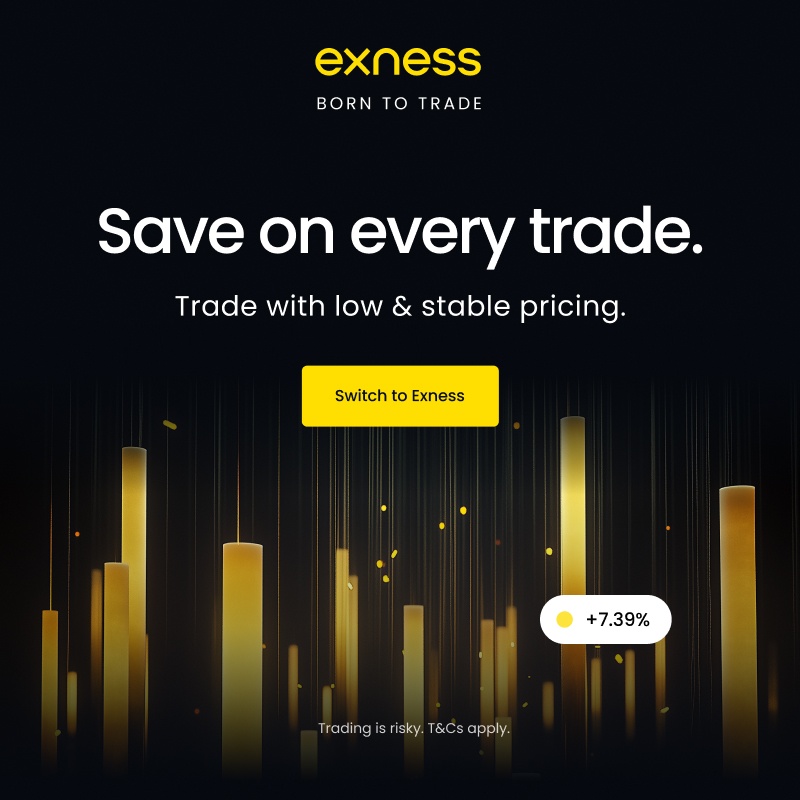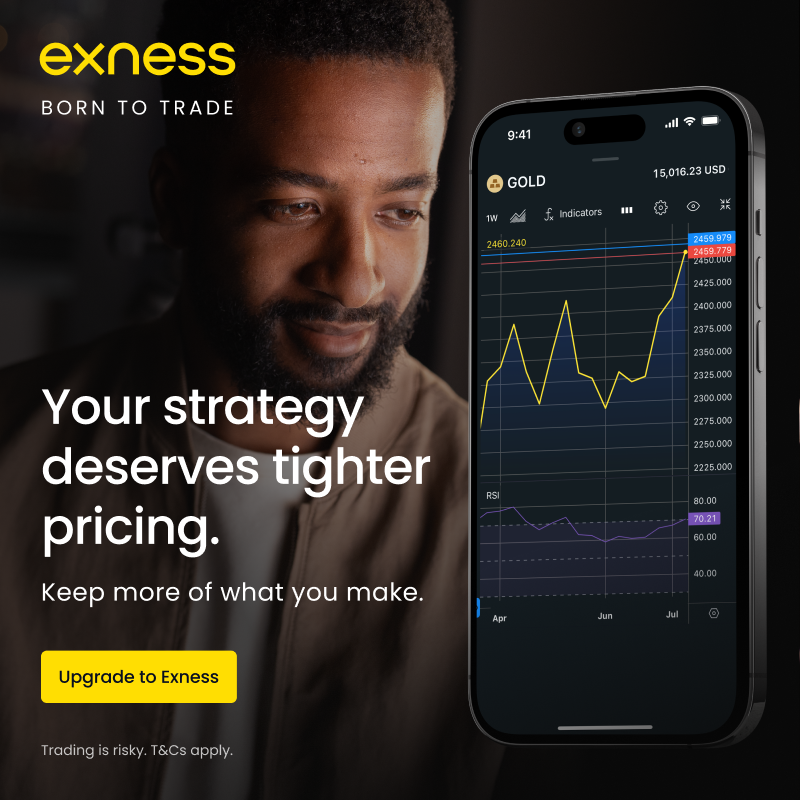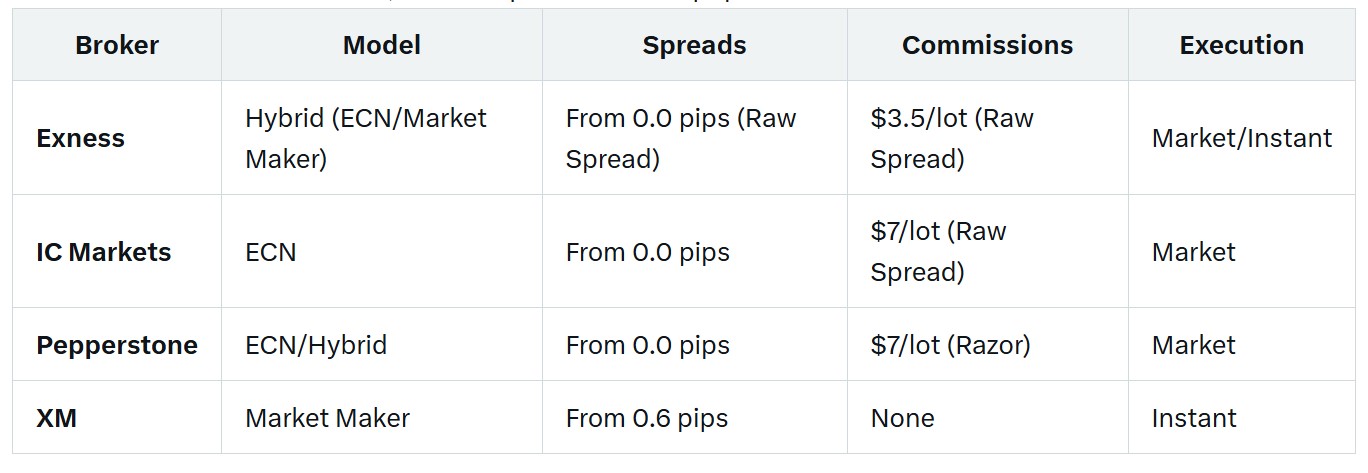
9 minute read
Is Exness ECN or Market Maker? A Comprehensive Guide
When choosing a forex broker, one of the most critical questions traders ask is whether the broker operates as an Electronic Communication Network (ECN) or a Market Maker. This distinction significantly impacts trading conditions, costs, and overall experience. Exness, a globally recognized forex and CFD broker, is often at the center of this debate. In this article, we’ll dive deep into the question: Is Exness ECN or Market Maker? We’ll explore Exness’ trading model, compare ECN and Market Maker brokers, and provide insights to help you decide if Exness aligns with your trading goals.

💥 Trade with Exness now: Open An Account or Visit Brokers 🏆
What is an ECN Broker?
Before addressing Exness’ model, let’s clarify what an ECN broker is. An Electronic Communication Network broker connects traders directly to a network of liquidity providers, such as banks, hedge funds, and other traders. This setup ensures that orders are executed at the best available market prices without broker interference.
Key Characteristics of ECN Brokers:
· Direct Market Access (DMA): Orders are sent straight to liquidity providers, ensuring transparency.
· Variable Spreads: Spreads fluctuate based on market conditions, often tighter during high liquidity.
· Commission-Based Fees: ECN brokers typically charge a commission per trade instead of widening spreads.
· No Conflict of Interest: Since the broker doesn’t take the opposite side of your trade, there’s no incentive to manipulate prices.
· Depth of Market (DOM): Traders can see the order book, showing available bid and ask prices.
ECN brokers are favored by scalpers, day traders, and those seeking transparency, as they offer raw market conditions. However, the commission fees and variable spreads can increase costs during volatile markets.
What is a Market Maker Broker?
A Market Maker broker, on the other hand, acts as the counterparty to your trades. They create an internal market by setting their own bid and ask prices, often based on the broader interbank market.
Key Characteristics of Market Maker Brokers:
· Fixed or Controlled Spreads: Spreads are often fixed or tightly controlled, making costs predictable.
· No Commissions: Instead of commissions, Market Makers earn through the spread.
· Potential Conflict of Interest: Since the broker takes the opposite side of your trade, they profit when you lose.
· Simplified Execution: Orders are filled instantly, but slippage may occur during volatile periods.
· No Depth of Market: Traders don’t see the order book, as prices are set internally.
Market Makers are popular among beginners due to their predictable spreads and user-friendly platforms. However, the conflict of interest raises concerns for some traders, as brokers may manipulate prices or delay executions.
Exness: An Overview
Founded in 2008, Exness is a Cyprus-based broker regulated by multiple authorities, including the CySEC (Cyprus), FCA (UK), and FSA (Seychelles). With over 200,000 active clients and a monthly trading volume exceeding $4 trillion, Exness is a major player in the forex industry. Known for its competitive spreads, fast execution, and diverse account types, Exness caters to both retail and institutional traders.
Exness offers several account types, including:
· Standard Accounts: Standard and Standard Cent.
· Professional Accounts: Raw Spread, Zero, and Pro.
The variety of accounts raises the question: Does Exness operate as an ECN broker, a Market Maker, or a hybrid model? Let’s analyze their trading model to find out.
Is Exness an ECN Broker?
Exness explicitly states that it operates as a hybrid broker, combining elements of both ECN and Market Maker models depending on the account type. However, certain accounts, particularly the Raw Spread and Zero accounts, exhibit strong ECN-like characteristics.
Evidence Supporting Exness as an ECN Broker:
Raw Spread and Zero Accounts:
· These accounts offer ultra-low spreads starting from 0.0 pips, a hallmark of ECN brokers.
· Exness charges a commission per trade (e.g., $3.5 per lot per side on Raw Spread accounts), which aligns with ECN pricing models.
· Orders are routed to liquidity providers, ensuring direct market access and minimal broker interference.
Liquidity Providers:
· Exness partners with top-tier liquidity providers, such as major banks, to ensure deep liquidity and competitive pricing. This is a common practice among ECN brokers.
No Requotes:
· Exness guarantees no requotes on its Professional accounts, ensuring fast and transparent execution, similar to ECN brokers.
Depth of Market (DOM):
· While not explicitly advertised, advanced traders using the Zero or Raw Spread accounts report access to market depth, a feature associated with ECN brokers.
These factors suggest that Exness operates as an ECN broker for its Professional accounts, particularly for high-volume traders seeking raw market conditions.

💥 Trade with Exness now: Open An Account or Visit Brokers 🏆
Is Exness a Market Maker?
For its Standard and Standard Cent accounts, Exness leans toward a Market Maker model. These accounts are designed for beginners and casual traders, offering simplified trading conditions.
Evidence Supporting Exness as a Market Maker:
Fixed or Controlled Spreads:
· Standard accounts feature wider spreads (starting from 0.3 pips) without commissions, a common trait of Market Maker brokers.
· Exness sets its own prices for these accounts, acting as the counterparty to trades.
Instant Execution:
· Standard accounts use instant execution, where orders are filled at the broker’s quoted price. This is typical of Market Makers, as it allows for faster fills but may result in slippage.
No Commissions:
· Instead of charging commissions, Exness earns through the spread on Standard accounts, aligning with Market Maker practices.
Simplified Trading Environment:
· Standard accounts lack advanced features like DOM, catering to traders who prioritize ease of use over raw market access.
For these accounts, Exness likely internalizes orders, taking the opposite side of client trades. However, their robust regulation and transparent pricing mitigate concerns about price manipulation.
Exness’ Hybrid Model: The Best of Both Worlds?
Exness’ hybrid model allows it to cater to diverse trader needs. By offering both ECN-like accounts (Raw Spread, Zero) and Market Maker accounts (Standard, Standard Cent), Exness provides flexibility and choice. This approach is not unique—many top brokers, such as IC Markets and Pepperstone, adopt similar hybrid models to balance transparency and user-friendliness.
How Exness’ Hybrid Model Works:
· Professional Accounts (ECN-Like): Orders are routed to liquidity providers, offering tight spreads, commissions, and direct market access. These accounts are ideal for scalpers, day traders, and high-volume traders.
· Standard Accounts (Market Maker): Orders are internalized, with Exness acting as the counterparty. These accounts suit beginners and traders with smaller budgets due to their commission-free structure and predictable spreads.
Benefits of Exness’ Hybrid Model:
· Versatility: Traders can choose an account type that matches their experience level and trading strategy.
· Transparency: Exness is upfront about its execution models, with detailed information on spreads, commissions, and order routing.
· Regulation: Strict oversight by CySEC, FCA, and other regulators ensures fair practices, even for Market Maker accounts.
· Competitive Conditions: Whether ECN or Market Maker, Exness offers some of the industry’s lowest spreads and fastest execution speeds.
Drawbacks of the Hybrid Model:
· Complexity: New traders may find it confusing to navigate the different account types and execution models.
· Potential Conflict of Interest: On Standard accounts, Exness’ Market Maker role could raise concerns, though their regulation minimizes risks.
· Higher Costs for ECN Accounts: Commissions on Raw Spread and Zero accounts can add up for high-frequency traders.
Comparing Exness to Other Brokers
To contextualize Exness’ model, let’s compare it to other popular brokers:

Exness stands out for its competitive spreads and flexible account options. While its ECN accounts are slightly cheaper than competitors like IC Markets, its Market Maker accounts offer tighter spreads than pure Market Makers like XM.
Which Exness Account Should You Choose?
Your choice of Exness account depends on your trading style, experience, and budget. Here’s a quick guide:
· Scalpers and Day Traders: Opt for the Raw Spread or Zero accounts. These offer ECN-like conditions with ultra-low spreads and fast execution, ideal for high-frequency trading.
· Beginners and Casual Traders: Choose the Standard or Standard Cent accounts. These provide commission-free trading and predictable spreads, perfect for learning or trading with smaller capital.
· Swing Traders: The Pro account strikes a balance, offering low spreads without commissions and market execution, suitable for longer-term strategies.
Pros and Cons of Trading with Exness
Pros:
· Regulated by Top Authorities: CySEC, FCA, and FSA ensure safety and transparency.
· Competitive Spreads: Ultra-low spreads on ECN-like accounts and reasonable spreads on Standard accounts.
· Fast Execution: Average execution speeds of under 100ms, minimizing slippage.
· Diverse Account Types: Caters to beginners, professionals, and institutional traders.
· High Leverage: Up to 1:2000 (depending on regulation and account type), appealing to risk-tolerant traders.
Cons:
· Hybrid Model Confusion: The mix of ECN and Market Maker models may confuse new traders.
· Limited Educational Resources: Exness lags behind competitors like XM in providing learning materials.
· Regional Restrictions: Some account features vary by jurisdiction due to regulatory differences.
How to Verify Exness’ Trading Model
If you’re still unsure about Exness’ execution model, here are steps to confirm their practices:
· Check Account Specifications: Visit Exness’ official website and review the details for each account type. Look for terms like “market execution,” “commissions,” or “liquidity providers.”
· Test with a Demo Account: Open a demo account to experience spreads, execution speeds, and order fills in a risk-free environment.
· Contact Support: Exness’ 24/7 customer support can clarify how orders are processed for specific accounts.
· Read Trader Reviews: Platforms like ForexPeaceArmy and Trustpilot offer insights from real users about Exness’ execution quality.
Conclusion: Is Exness ECN or Market Maker?
Exness is neither a pure ECN nor a pure Market Maker broker—it’s a hybrid broker that combines the best of both worlds. The Raw Spread and Zero accounts operate with ECN-like conditions, offering direct market access, tight spreads, and commissions. Conversely, the Standard and Standard Cent accounts function as Market Maker accounts, with wider spreads, no commissions, and instant execution.
This hybrid model makes Exness a versatile choice for traders of all levels. Whether you’re a scalper seeking raw spreads or a beginner looking for simplicity, Exness has an account to suit your needs. Their strong regulation, competitive pricing, and transparency further solidify their reputation as a reliable broker.
If you’re considering Exness, evaluate your trading style and goals to choose the right account. For ECN-like conditions, go with the Professional accounts; for ease of use, stick with the Standard accounts. Ultimately, Exness’ hybrid approach offers flexibility, making it a strong contender in the forex market.
💥 Note: To enjoy the benefits of the partner code, such as trading fee rebates, you need to register with Exness through this link: Open An Account or Visit Brokers 🏆
Read more:

